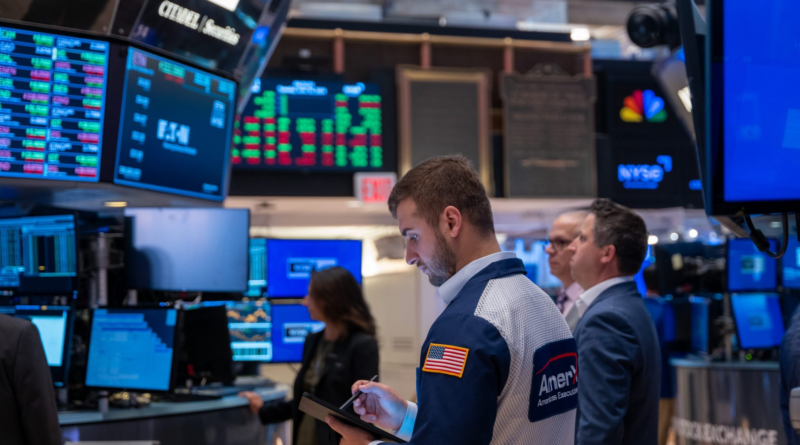AI optimists are behaving like the investors who got burned in the Great Depression and dot-com bubble, Vanguard’s chief economist warns
Roughly 100 years ago, electricity began to course through the developed world, transforming lives and sparking a stock price surge. One need not be an economic historian to know that the Great Depression of the 1930s stemmed, in part, from untrammeled risk-taking in the Roaring ‘20s.
Today, signs of investor restraint are once again difficult to find. In aggregate, U.S. stock prices are roughly 45% above the top of what I consider to be their fair-value trading range. I would view stocks as overvalued even if we knew with certainty that artificial intelligence—the probable cause of investors’ recent enthusiasm—would ultimately transform every facet of human life, delivering economic benefits on par with the advent of electricity.
In the U.S. technology and communication services sectors, share prices are inexplicably high relative to expected rates of corporate profit growth. Since ChatGPT launched to the public on Nov. 30, 2022, the average stock in both sectors has nearly doubled in price.
The potential of technology to drive productivity and profits obviously justifies some level of share-price premium. But as a group, the large-cap tech companies in the S&P 500 Index lately have been anywhere from 80% more expensive than the rest of the market (in the case of their price-to-trailing earnings ratios) to more than four times as expensive (price-to-sales).
Overvaluations are not confined to one or two sectors. Tremendously expensive AI-related shares combine with optimistic pricing in most other market segments to leave the overall U.S. stock market more overvalued than at any point since early 2001. My estimate is based on a proprietary Vanguard fair-valuation measure that puts stock prices in the context of a decade’s worth of corporate earnings, as well as the prevailing levels of interest rates and inflation.
While there are no good market-timing tools, valuations are a famously poor one. The market tends to swing from periods of overvaluation to periods of undervaluation while spending relatively modest periods in fair-value territory.
Indeed, Vanguard megatrends research finds that outsized overvaluations and corrections tend to coincide with transformative technological changes. Investors grow euphoric early on, then suffer disappointment when the new technology’s vast potential is not more quickly realized.
Consider the late ‘90s. Some of today’s largest companies were small caps then. They would grow into powerhouses, and the Internet would transform the economy. And yet, the broad U.S. stock market still suffered a near-50% decline in the 30-month-long tech, media, and telecom-driven meltdown that began in March 2000. Tech shares suffered much more.
I am optimistic about the future of AI. There’s a meaningful chance for it to drive significant gains in productivity and economic growth over the coming decade or so. But we are not yet in the AI boom. For AI’s promise to be fully realized, low rates of AI adoption must rise, and companies must learn how they can harness the technology. At Vanguard, we do not expect AI’s peak effects on productivity and economic growth until the 2030s.
In the meantime, earnings growth expectations for the next three to five years are wildly optimistic.
The revenues and profit margins of individual companies can surprise dramatically to the up- or the downside, but in the aggregate, the two components of corporate profits tend to be slower-moving and more predictable. They almost surely will disappoint in the near-to-intermediate term.
Even if AI ultimately transforms the economy, as the Vanguard Megatrends Model suggests it will, the companies that will benefit most will be outside the technology sector. In my estimation, the productivity unlocked across industries would be as if the 17 million baby boomers expected to retire between now and 2034 never do so.
Indeed, if AI proves transformative, every company on the planet will benefit—not just those in Silicon Valley.
More must-read commentary published by Fortune:
The opinions expressed in Fortune.com commentary pieces are solely the views of their authors and do not necessarily reflect the opinions and beliefs of Fortune.




